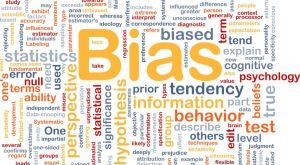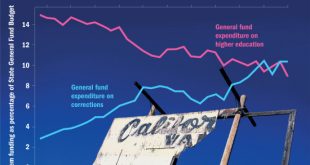The essence of neoliberalism Economists may not necessarily share the economic and social interests of the true believers and may have a variety of individual psychic states regarding the economic and social effects of the utopia which they cloak with mathematical reason. Nevertheless, they have enough specific interests in the field of economic science to contribute decisively to the production and reproduction of belief in the neoliberal utopia. Separated...
Read More »Economic ideology
La force de l’autorité scientifique, qui s’exerce sur le mouvement social et jusqu’au fond des consciences des travailleurs, est très grande. Elle produit une forme de démoralisation. Et une des raisons de sa force, c’est qu’elle est détenue par des gens qui ont tous l’air d’accord entre eux — le consensus est en général un signe de vérité. C’est aussi qu’elle repose sur les instruments apparemment les plus puissants dont dispose aujourd’hui la pensée, en particulier les...
Read More »The ‘patriotic bias’ of Ricardo’s trade theory
The ‘patriotic bias’ of Ricardo’s trade theory Ricardo ging in seinem Modell des komparativen Vorteils von einem „patriotischen Bias“ aus: Er nahm an, dass weder In-vestments noch Arbeitskräfte international sonderlich mobil sind, und führt sein Argument des komparativen Vorteils für den freien Handel der Erzeugnisse unterschiedlicher Nationen bzw. Produktionsstandorte. Die heutige Globalisierung geht freilich über einen freien Güterhandel zwischen...
Read More »The world wants to be deceived
The world wants to be deceived The phrase, the world wants to be deceived, has become truer than had ever been intended. People are not only, as the saying goes, falling for the swindle; if it guarantees them even the most fleeting gratification they desire a deception which is nonetheless transparent to them. They force their eyes shut and voice approval, in a kind of self-loathing, for what is meted out to them, knowing fully the purpose for which it is...
Read More »Modern society
div{float:left;margin-right:10px;} div.wpmrec2x div.u > div:nth-child(3n){margin-right:0px;} ]]> Advertisements
Read More »Doggie
August is the latest addition to the Syll-Meyer family. Four days today. And yes — Strindberg is one of our favourite writers … div{float:left;margin-right:10px;} div.wpmrec2x div.u > div:nth-child(3n){margin-right:0px;} ]]> Advertisements
Read More »Bostadsbubblan spricker!
Prisuppgången på bostäder i Stockholm de senaste 20 åren är unik i världen … Nu har fastighetsprofessorn Hans Lind och stockholmaren Fredrik B Nilsson skrivit boken “Att förstå bostadsmarknaden genom historien om den ofrivillige bostads-karriäristen” … I boken resonerar Hans Lind, som är professor i bygg- och fastighets-ekonomi, utifrån forskning och vetenskapliga teorier kring Stockholms bostadsmarknads historia, vilka mekanismer som drivit den och vad som kommer att ske...
Read More »Milton Friedman’s permanent income hypothesis — so wrong, so wrong
Milton Friedman’s permanent income hypothesis — so wrong, so wrong Milton Friedman’s Permanent Income Hypothesis (PIH) says that people’s consumption isn’t affected by short-term fluctuations in incomes since people only spend more money when they think that their life-time incomes change. Believing Friedman is right, mainstream economists have for decades argued that Keynesian fiscal policies therefore are ineffectual. As shown over and over again for the...
Read More »I Want a President
I Want a President Just across the street from where I’m living, The Municipal Art Gallery has had Zoe Leonard’s I Want a President installed on its exterior for a couple of months now. “I want to know why we started learning somewhere down the line that a president is always a clown … Always a boss and never a worker. Always a liar, always a thief, and never caught.“ Interesting art … div{float:left;margin-right:10px;} div.wpmrec2x div.u >...
Read More »Big Data — Poor Science
Big Data — Poor Science Almost everything we do these days leaves some kind of data trace in some computer system somewhere. When such data is aggregated into huge databases it is called “Big Data”. It is claimed social science will be transformed by the application of computer processing and Big Data. The argument is that social science has, historically, been “theory rich” and “data poor” and now we will be able to apply the methods of “real science” to...
Read More » Lars P. Syll
Lars P. Syll










